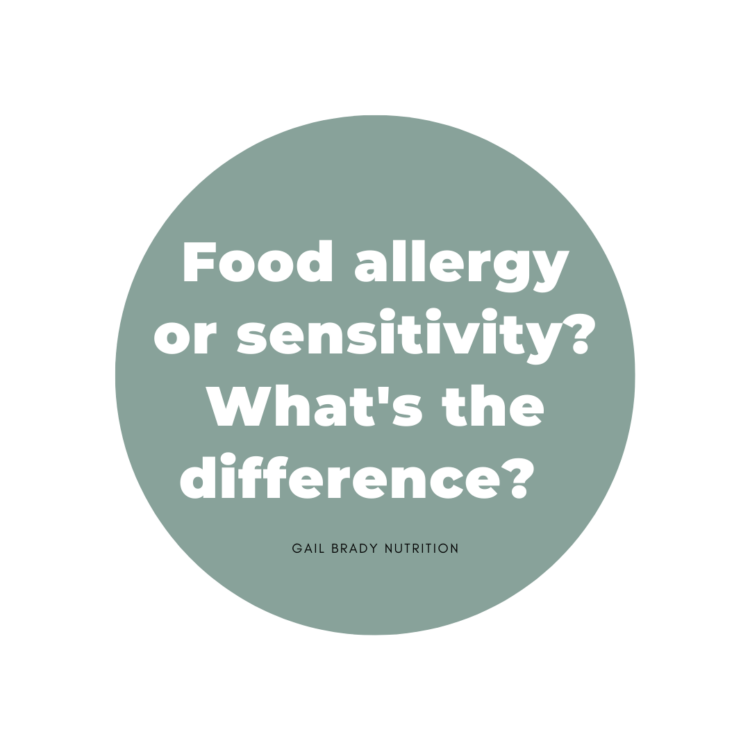You may suspect that certain foods do not agree with you.
You may react immediately after you have eaten something.
Or hours, even days afterwards…
You may get symptoms so occasionally that you find it difficult to pinpoint what actually caused them.
The most common foods that people react to are tree nuts, gluten, dairy, eggs, soy, seafood, and fish.
You will sometimes hear the terms food allergy, food intolerance and food sensitivities used interchangeably but there are differences. Here is the lowdown
Food Allergy
Food allergies can range from mild to severe.
At their most extreme food allergies can be life-threatening and cause anaphylaxis shock.
You may know someone who has a life-threatening allergy such as a severe reaction to nuts.
Peanut allergies are probably the most well known but there are many other common food allergens including milk, soy, kiwi, fish, seafood, and eggs.
Allergies are activated by an immune response usually within 1-60 minutes of consuming the allergen.
They are often diagnosed in childhood but have become increasingly more common in peri/menopause. This is thought to be due to a link between hormonal health and the immune system.
Milder allergy symptoms can include; skin conditions, headaches, joint pain, brain fog and digestive issues.
Coeliac disease where individuals react to gluten, chronic digestive and autoimmune disease. It affects around % of the population although this figure may be higher due to the estimated number of undiagnosed cases.
Food Sensitivities
Are harder to detect… There is often a delay in the reaction time from 3-48 hours. This can make it much more difficult to work out exactly which foods you are reacting to. Keeping a good diary can help with this.
The gold standard practice for working out which foods are causing the issues is a supervised elimination challenge diet. This is where certain foods are completely eliminated from your diet for a period of around 3-4 weeks and then re-introduced one by one with careful monitoring for any reactions.
The good news about food sensitivities is that they can often be reversed.
Processed foods, stress, inflammation, and toxins are just some of the reasons food sensitivities can develop. All of these things can lead to compromised gut health but with the right foods and gut support they can be reversed.
Common symptoms of food sensitivities are similar to the less severe allergy symptoms (skin conditions, headaches, joint pain, brain fog, digestive issues).
Food Intolerance
Food intolerances are non-immune related but can still present with similar symptoms.
They are often due to a lack of enzymes to break down specific foods such as the lactose in milk and dairy products (lactose intolerance).
Common food intolerances are dairy, eggs and grains
If you suspect that you may be reacting to certain foods, and you would like to find out more about the elimination challenge diet or gut health testing, please email me at gail@gailbradynutrition.com.




